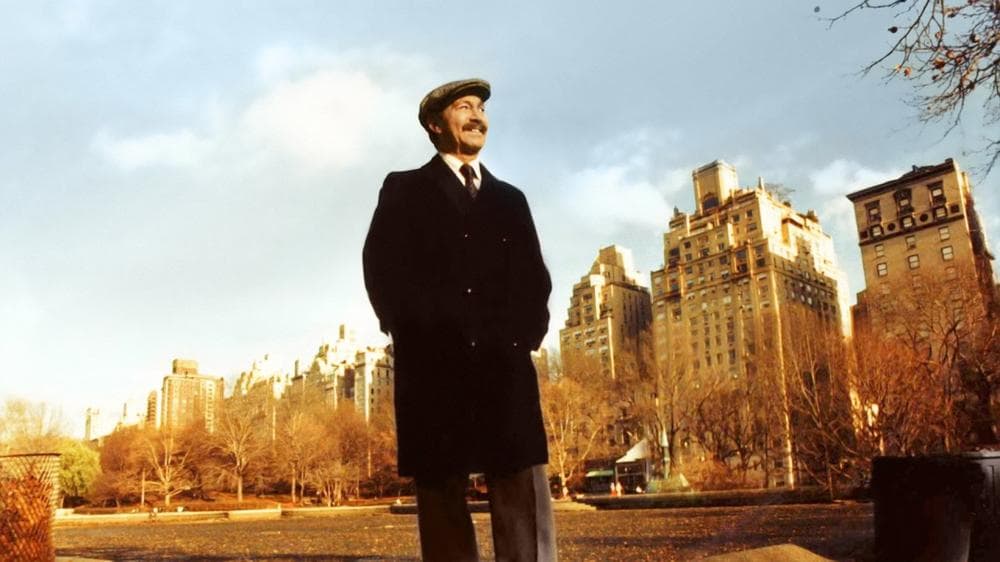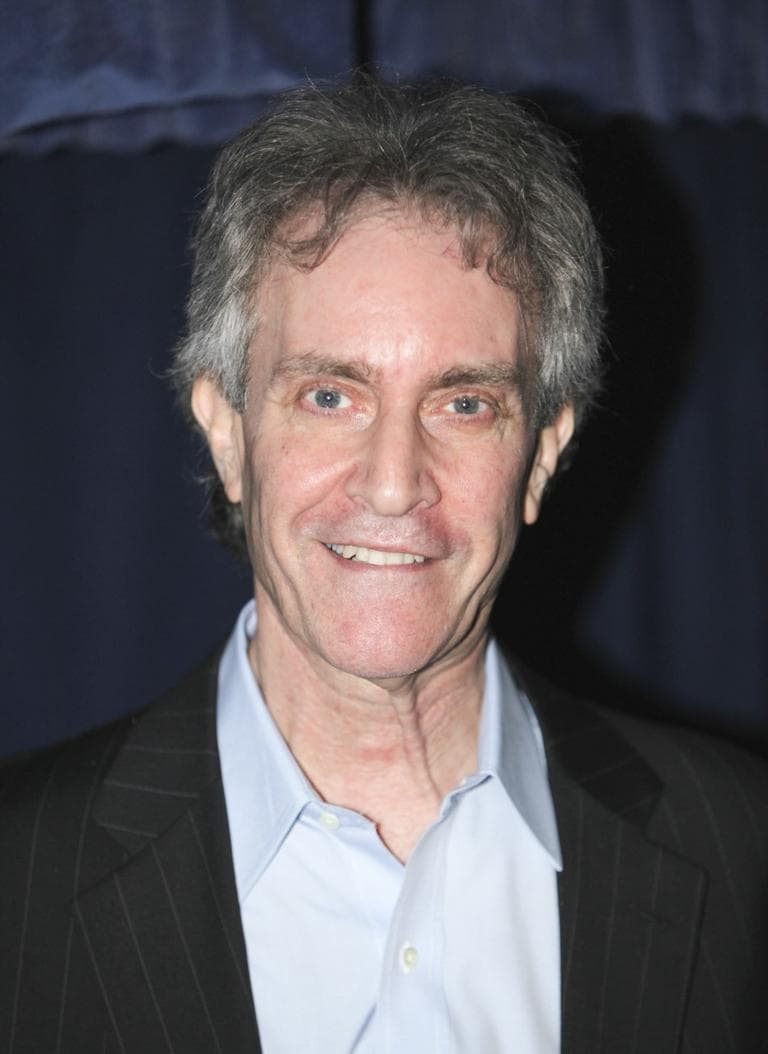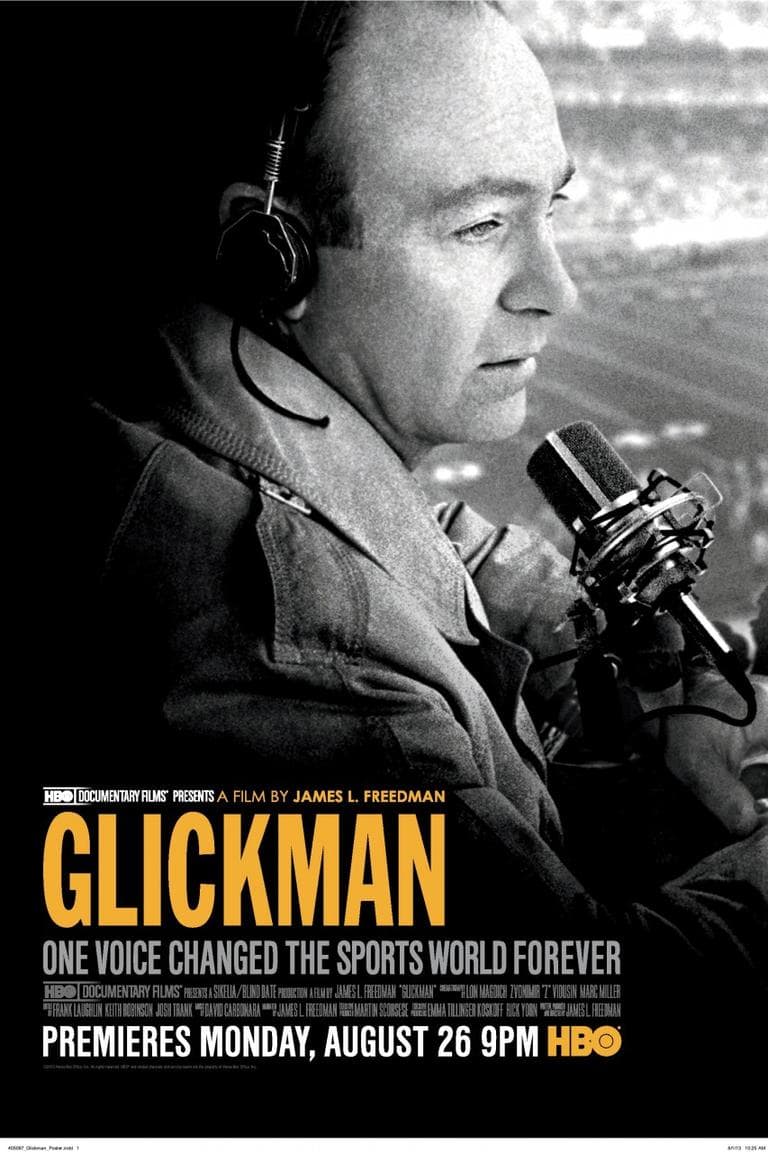Advertisement
Featured Movie
'Glickman': A Life Spent Battling Discrimination

Marty Glickman, known to generations of football and basketball fans as an especially energetic and innovative play-by-play announcer, was also a terrific athlete. He should have competed in the 1936 Olympic Games, and the story of how that opportunity was taken from him is at the center of the new HBO documentary "Glickman."
Film maker Jim Freedman joined Bill Littlefield.

Excerpts from Bill's Conversation with James Freedman
BL: At 18, Marty Glickman was one of two Jewish runners pulled from the competition at the '36 Games in Berlin by the coaches of the U.S. team and the chairman of the U.S. delegation. Why?
JF: Some people believe it was track politics and the assistant head track coach Dean Cromwell was showing favoritism to his two USC sprinters. But Marty, not at the time, but he later learned and many people believe — and I'm one of them — that it was anti-Semitism. Marty Glickman and Sam Stoller, the only two Jewish runners on the U.S, track team, were scheduled to race. Well they were replaced the morning of the day of the race with this bogus story from the U.S. coaches that the Germans were hiding world-class sprinters to upset the American team in the race. So Marty and Sam Stoller were replaced by Jesse Owens and Ralph Metcalfe and sure enough we won the race by 15 yards.
And it was something that Marty Glickman later learned, as did the public, that Dean Cromwell and Avery Brundage, the head of the U.S. Olympic Committee at that time, were Nazi sympathizers. They were supporters of an organization called America First, which in its latter years did not want the U.S. to enter the war against Germany. And if that weren't proof enough, two years after the Olympics, when the Nazis were going to build a German embassy in Washington, D.C., they awarded the construction contract to Avery Brundage's company.
Advertisement
BL: Lots of younger play-by-play announcers in the documentary celebrate Glickman's energy and his ability to create a picture for people listening to the game on the radio. Is it accurate to say, as Bob Costas does in the film, that Glickman created a "theater of the mind?"
It's absolutely. Marty Glickman, prior to doing those [New York] Giants games, was really the pioneer of radio basketball play-by-play. And as [Bob] Costas and Marv [Albert] and Mike Breen explain in the film, he gave a geography of the court to the listener. You saw the game. As Larry King said, "he was television on radio."
At 18, Marty Glickman should have been part of the story that most prominently featured Jesse Owens, who starred in the 1936 Olympics in Berlin, thereby fouling up Adolf Hitler's plan to show the world that as athletes, Arians were superior to everyone else. As a member of the U.S. 400 meter relay team that won gold in those Games, Marty Glickman, a proud Jew, would have further scrambled Hitler's perverse script. But Glickman and his Jewish teammate, Sam Stoller, were replaced. They did not get the opportunity to run. That's one of the stories at the center of Glickman, the documentary currently running on HBO. The story reaches its powerful climax in 1985, when Glickman returns to Berlin and is stunned by the powerful feelings the visit provokes.
Following his athletic adventures, Marty Glickman went on to establish a long career as a broadcaster of professional football and basketball games and various other events, including marbles competitions. As numbers of current and former broadcasters say in the film, no matter what he was broadcasting, he was superb at his job. More significantly, the film establishes that Marty Glickman was a compassionate gentleman capable of transcending resentment and bitterness to embrace a vision of authentic brotherhood. In part he attributed his ability to do that to his participation in sports, which is a great credit to sports.
This segment aired on August 31, 2013.

